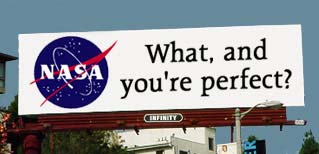

THE BLOOD RULE
Anne Casselman, an editorial intern for Discover magazine, wrote a short column in the June 2005 issue titled, "11 Years Ago in Discover." In the article Anne reports that Munwan, an English teacher in Sri Lanka, saved 20 to 30 people when the tsunami hit the coast on December 26th, 2005. Munwan saw the ocean level suddenly change, and he had just read in an old issue (May 1994) of Discover that this was the prelude to a tsunami. (Munwan collects old English language magazines.) He ran for higher ground shouting warnings to others, but only about 20 or 30 followed him.
The 11-year old issue of Discover that Munwan had just read featured a story about "Killer Waves" and the need for effective tsunami warning systems. Unfortunately, as Anne's article points out, the only tsunami warning systems in the world (then and now) were each installed in response to specific disasters. She emphasizes the idea of "after" to drive home the point. What Anne didn't say was that this is just another example of the Blood Rule.
I now think the Blood Rule is good, but I didn't always feel this way. When I first worked as a flight safety officer in the Military Airlift Command, over 30 years ago, I was bemoaning the fact that trying to get what I though were obviously needed new safety regulations enacted was nearly impossible. My boss, a Lt. Col. who had been in flight safety many years, responded, "You can't get flight safety changes implemented until there are assholes and elbows all over the hillside." That was his way of saying that until there is blood spilled, action to prevent such occurrences doesn't happen–i.e. the Blood Rule.
Hindsight is a great teacher. Four years after 9-11 people are still arguing about what should have been done to prevent it, and why so and so didn't do such and such. The arguments are in two basic categories: what should have been done, and what we should do now. Nothing was done about terrorism until we had terrorism. To predict that it would happen and take the extensive and costly measures that we have taken since 9-11, without 9-11 having happened first, would have been political suicide for anyone. In fact passing the legislation would have been impossible.
The Blood Rule has its roots in human behavior and manifests itself in rather insignificant ways. A child burns a hand on a hot stove and subsequently takes precautions to prevent that from happening again. Experience is the best teacher. We learn as we grow up that when we have an accident, we take the necessary measures to prevent a reoccurrence. If we tried to anticipate every possible serious event and take preventative measures, our lives would be filled with paranoia, and progress would be stymied – as OSHA found out early in its do-good era. If NASA had followed OSHA's philosophy, we would still not have put men on the moon.
Unfortunately, the world has an overabundance of stupid people and lawyers to represent them, which is why we have OSHA, and why some hair dryers come with warnings not to use in the shower.